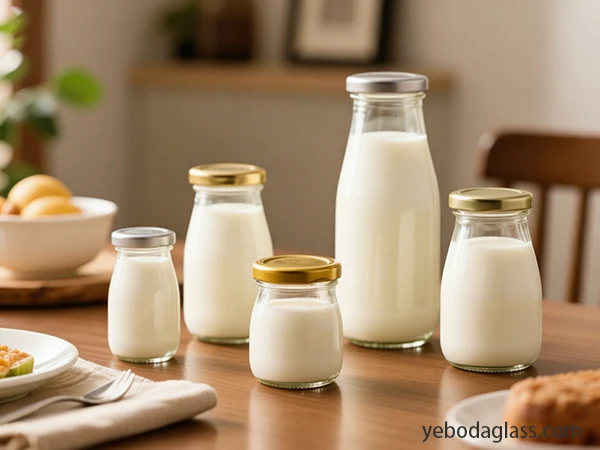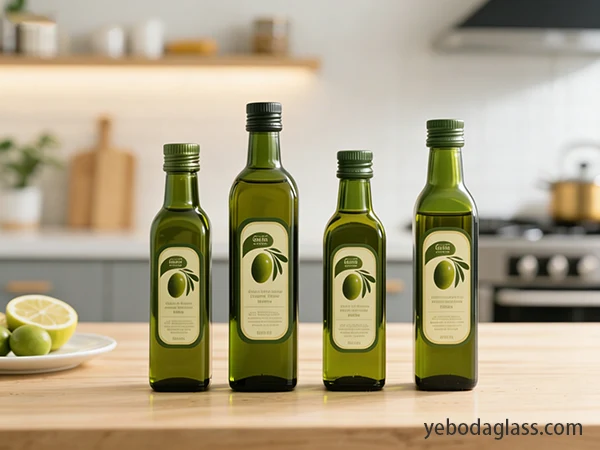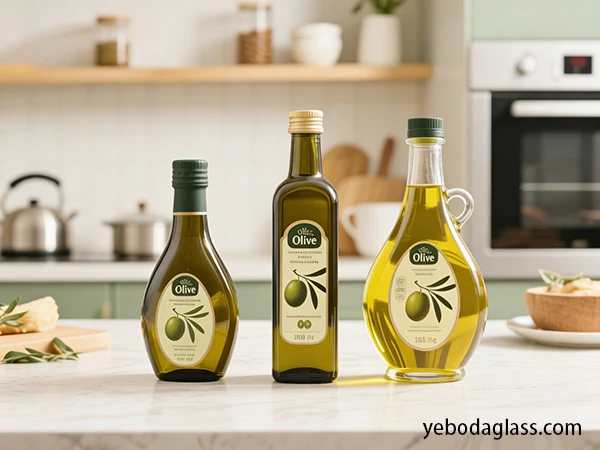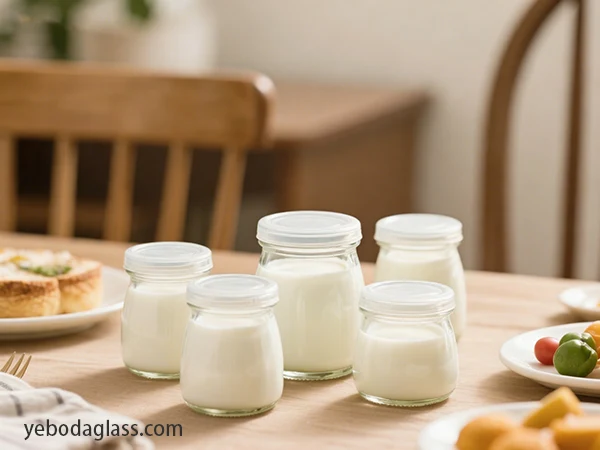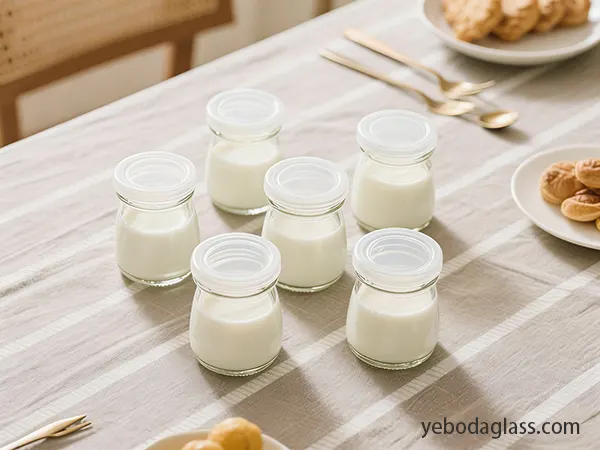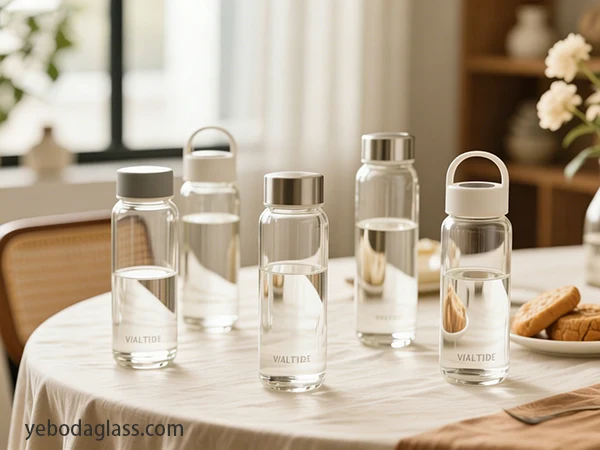Introduction
The very first and most essential phase is the one that in any custom packaging project decides whether a brand’s move with glass bottles, glass milk bottles, or other specialty containers will be successful in the long run. An honest milk bottle wholesaler, brought on board early in the process, makes sure that the strategic decisions are not only in line with the brand identity but also feasible from the manufacturing point of view. Proper planning at this point enables one to avoid costly engineering conflicts later on, reduce the waste of resources, and ensure that the final product is of a high-quality standard and at the same time fully compatible with the production capabilities of the chosen milk bottle wholesaler. Working with a knowledgeable milk bottle wholesaler, brands can also receive valuable advice on material selection, mold design, and regulatory compliance, thus laying a strong groundwork for a smooth, efficient, and successful custom glass packaging program.
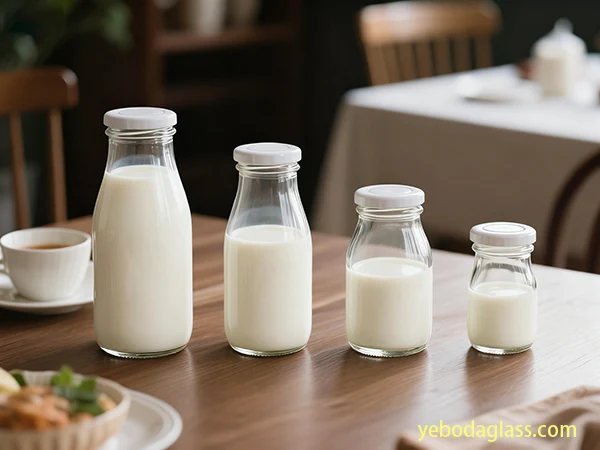
Strategic Framework for Customization
The strategic pathway for developing custom glass containers—whether standard beverage bottles, glass milk bottles, or repurposed Mason-style containers—begins with one essential decision:
Should the brand customize an existing stock container or invest in a proprietary mold?
This choice is heavily influenced by production scale, brand positioning, regulatory constraints, and the experience level of the chosen manufacturing partner or milk bottle wholesaler. For small to mid-scale buyers, a milk bottle wholesaler often becomes a bridge between concept and execution.
Surface Decoration on Stock Containers
Surface decoration is the simplest and fastest way to enter the market. It uses existing shapes of glass bottles or glass milk bottles already produced by factories or distributed through a milk bottle wholesaler network.
Advantages
- No mold fees
- Fastest time-to-market
- Low MOQs (ideal for new brands or seasonal launches)
Disadvantages
- Limited shape customization
- Form factor may look similar to competing products
- Decorative durability varies depending on technique
Because surface customization works exceptionally well for short and medium production runs, many brands rely on a milk bottle wholesaler to provide stable stock shapes that can be decorated through screen printing, decals, or coatings.
Proprietary Mold Development
A proprietary mold creates a fully unique container, giving the brand absolute control over geometry, ergonomics, and volume optimization.
Advantages
- Full control over silhouette and structural design
- Protectable brand asset
- Can reduce long-term per-unit costs at high volumes
Disadvantages
- High initial tooling cost
- Longer development lead time (3–6 months)
- Requires high MOQs (often 50,000+ units)
Production Scale as a Strategic Decision Driver
- Under 1,000 units → Stock decoration only
- 10,000–50,000 units → Semi-custom or single-cavity mold
- 100,000+ units → Proprietary mold with multi-cavity tooling is optimal
Role of the Milk Bottle Wholesaler in Early Strategy (Yeboda Example)
Among the top considerations in the first strategic stage is choosing whether to work directly with a factory or through a milk bottle wholesaler. Within this segment, Yeboda—as a leading milk bottle wholesaler—provides notable advantages:
- A hybrid customization model combining stock shapes with premium decoration
- Established factory networks that match projects to the right production facility
- End-to-end oversight including mold development, artwork, QC, and freight
- Expertise in navigating regulatory paths for food-grade glass milk bottles
Design & Engineering: From Concept to Technical Specification
Once the strategy is determined, the next step is transforming concepts into manufacturable specifications.
Material Science & Glass Composition
Most glass milk bottles and food-grade glass bottles are made using Type III soda-lime glass. Adjustments in the formula can influence color, thermal shock resistance, chemical durability, and clarity.
Colorants
- Iron oxides → Green tones
- Cobalt → Deep cobalt blue
- Selenium & cadmium-based compounds → Reds & ambers
- Chromium blends → Olive tones
Purity and Clarity
High-end cosmetic and premium beverage brands may require:
- Low-iron flint glass for extreme transparency
- Optical-grade cosmetic flint for luxury serums
- Tinted but transparent colors for specialty drinks or dairy products

Structural Additives
- Alumina → Improved durability
- Boron → Higher thermal shock resistance (as in borosilicate)
Structural Design & Performance Requirements
Glass milk bottles or wide-mouth jars must be designed for both branding and functional reliability.
Heel, Base & Impact Zones
A reinforced heel radius and strong push-up base increase resistance to drops and thermal cycling.
Sidewall Engineering
Uniform wall thickness is critical to:
- Maintain structural integrity
- Prevent weak points
- Ensure even shrink or expansion under heating/cooling
Neck and Closure Compatibility
Common finishes include:
- 38-400 (common for glass milk bottles)
- 48-400 (juice bottles)
- 70-450 or 86-400 (wide-mouth jars)
Thread engagement, torque resistance, and liner compatibility are engineered during design.
Tooling, Mold Development & the Role of the Milk Bottle Wholesaler
Mold Design Principles
Blow-and-Blow
Ideal for narrow-neck glass bottles.
Press-and-Blow
Best for wide-mouth jars and glass milk bottles, ensuring even distribution.
Mold Materials
- Cast iron (standard)
- Bronze alloy inserts (for better heat transfer and surface finish)
Prototyping Workflows
3D Printed Molds for Validation
Used for ergonomics and branding review.
Unit Molds for First Sampling
Single-cavity molds produce early samples checked by QC, engineering, and the milk bottle wholesaler before scaling.
Market Dynamics in Global Milk Bottle Wholesaling
Evolving B2B Packaging Expectations
Worldwide food and beverage industries are constantly changing their packaging requirements that challenge the milk bottle wholesalers not only to improve the durability, but also to increase the supply stability and produce more eco-friendly materials. Among other things, glass has become again a highly attractive material for packaging because it is fully recyclable, has an excellent food safety profile, and has a nice appearance. The transition has had a great impact on the wholesalers as a result they have been compelled to modernize their production methods, implement environment-friendly furnace technologies, and ensure strict quality testing so as to meet various regional regulations. So, it is a prerequisite for a contemporary milk bottle wholesaler to combine competitive prices with sophisticated technical standards if he/she wants to keep up with global markets that move very fast.
Influence of Regional Consumption Trends
The pattern of consumption in Asia, Europe, and Latin America is influencing different dairy brands to change their sourcing strategies. Regions where café culture is prevailing and fresh milk is delivered directly to consumers have a strong preference for glass bottles with thicker walls. On the other hand, emerging markets mostly demand lightweight versions that have been specially designed for transport optimization. What each milk bottle wholesaler is obliged to do now is to be able to easily switch between different mold sets, have multi-capacity product lines, and be capable of customizing quickly. Fast-response to changes in bottle opaqueness, neck finishing, and surface treatment has nowadays become the key factor to a firm’s success in getting hold of B2B contracts again and again.
Supplier Capabilities and Material Engineering
Advanced Glass Formulation and Structural Strength
Today’s suppliers are working on improved melting technologies and refined raw-material proportions through which they can upgrade the glass clarity, impact strength, and temperature resistance of the bottle. A proficient milk bottle wholesaler accomplishes the production by using top-quality silica, optimized annealing cycles, and automated surface inspection systems for identifying areas that are weak in the product. Not only are these technological improvements crucial to the companies who want reusable bottles with excellent strength, but also to those that seek to have thermal-shock capable bottles for their pasteurization lines.
Customization for Brand Identity
Besides the structural aspects, brand owners are becoming more and more concerned about customization. This feature has significantly contributed to the brand’s decision to adopt the use of personalized embossing, different silhouette of the bottle, UV protective coating, and color glass option. A creative milk bottle wholesaler is obliged to provide such branding elements without production turnaround and without compromising the longevity of the bottles. Custom mold creation, digital design simulation, and fast prototyping are today’s standard ways for securing high-volume partnerships.
Logistics, Scalability, and Supply Chain Reliability
Inventory Planning and Bulk Fulfillment
Bulk distributors of dairy are very much dependent on the continuity of the supply of bottles. A well-prepared milk bottle wholesaler has large stockpiles of raw materials, fully automated palletizing systems, and real-time production scheduling in place so that he/she can limit the time of waiting. What really makes them capable is the coordination of multi-container shipments, mixed-capacity orders and packaging requirements that are region-specific. These are what make the supply chain stable and available for buyers who are from all over the world.
Global Shipping and Risk Management
In dealing with cross-border shipping problems, the main focus for the wholesalers should be on the optimization of the container loading patterns. It is also very important that they protect their containers more efficiently by using reinforced dividers, and at the same time, they should be cooperating with those freight partners who are very reliable. To lessen the impact of geopolitical and transportation risks, top wholesalers take certain measures such as port diversification, alternative transit route maintenance, and monitoring of global logistics data. This sturdiness leads to the absence of supply disruptions even during the periods of peak-demand, thus, putting the wholesaler in a position of a trusted long-term partner.

Quality Assurance and Regulatory Compliance
Industry Certifications and Testing
Quality assurance has been the main factor in the decision of the choosing of any milk bottle wholesaler. Customers want more and more that the company they work with complies with FDA, LFGB, and EU food-contact standards. A good wholesaler goes about it by carrying out fully automated inspection, drop testing, thermal cycling, and stress-point mapping for confirming the structural reliability of the product. These steps make the bottle capable of being used in repeated washing, filling, and transport processes of modern dairy operations.
Documentation and Traceability
Traceability measures like batch coding, digital production logs, and ingredient certification are very important characters in the story of the regulatory adherence. The wholesalers who lead the pack deliver the complete documentation packages to their clients thus raising the level of openness and lowering the compliance risk during customs inspections and audits. Such high-level consistency makes the long-term trust between them stronger which is very vital for the wholesaler to be an indispensable global supply partner.
Supply Chain, Cost Modeling & Working with a Milk Bottle Wholesaler
The supply chain defines the true total cost of ownership beyond production.
Sourcing Models
Direct Factory Purchasing
Lowest cost but riskier for inexperienced buyers.
Milk Bottle Wholesaler Partnership
A milk bottle wholesaler becomes the project integrator when brands lack internal engineering support. Today’s advanced wholesalers coordinate:
- Mold design
- Material selection
- Artwork engineering
- Decoration
- QC audits
- Customs & logistics
Because they handle both glass bottles and glass milk bottles, they can scale production across multiple factory partners. This is why many brands depend on a milk bottle wholesaler rather than managing the complexities themselves.
Comprehensive Cost Modeling: It is crucial to look beyond the per-unit price. The total landed cost includes numerous factors.
| Cost Component | Description | Low Volume Example (10k units) | High Volume Example (100k units) |
|---|---|---|---|
| Tooling/Mold Cost | One-time NRE (Non-Recurring Engineering) cost for the custom mold. | $15,000 | $45,000 (for multi-cavity) |
| Amortized Tooling | The tooling cost spread across the unit volume. | $1.50 / unit | $0.45 / unit |
| Unit Production Cost | The factory’s price to manufacture one glass container. | $0.60 / unit | $0.35 / unit |
| Decoration Cost | Cost for printing, etching, etc. (e.g., 2-color screen print). | $0.25 / unit | $0.18 / unit |
| Packaging | Cost of master cartons, dividers, and pallets. | $0.10 / unit | $0.08 / unit |
| Freight & Tariffs | Ocean/air freight, customs duties, and port fees. | $0.20 / unit | $0.15 / unit |
| Total Landed Cost | The total cost per unit delivered to your warehouse. | $2.65 / unit | $1.21 / unit |
Logistics Management: The nature of glass being heavy and fragile calls for the use of specially designed packaging (for instance, corrugated dividers, shrink-wrapped pallets) and it should also be handled with care. You should also think about the costs of warehousing, the lead time for sea freight (4-6 weeks) as well as the customs clearance while planning your stock.
Emerging Technologies & Future Outlook
Lightweighting Advances
Better FEA modeling enables lower-weight containers without reduced strength.
High-PCR Content Glass
Factories increasingly use recycled cullet to reduce energy use and environmental impact.
On-Demand Digital Printing
The next decade may bring high-speed digital direct-to-glass print lines, enabling true mass customization.
Smart Packaging Integration
QR codes, NFC chips, and serialized batch tracking turn ordinary glass milk bottles into intelligent, traceable packaging platforms.

Conclusion
Custom glass bottles and glass milk bottles require a rigorous process beginning with strategy, moving through engineering, and culminating in production excellence. Whether a brand chooses a proprietary mold or stock customization, the partner selection—especially choosing the right milk bottle wholesaler—is the core determinant of commercial success. A skilled milk bottle wholesaler provides design support, ensures manufacturability, manages QC, and connects brands to the most capable production lines. With the right partners and a structured approach, brands can create distinctive, regulation-compliant, high-performance containers ready for global markets.

